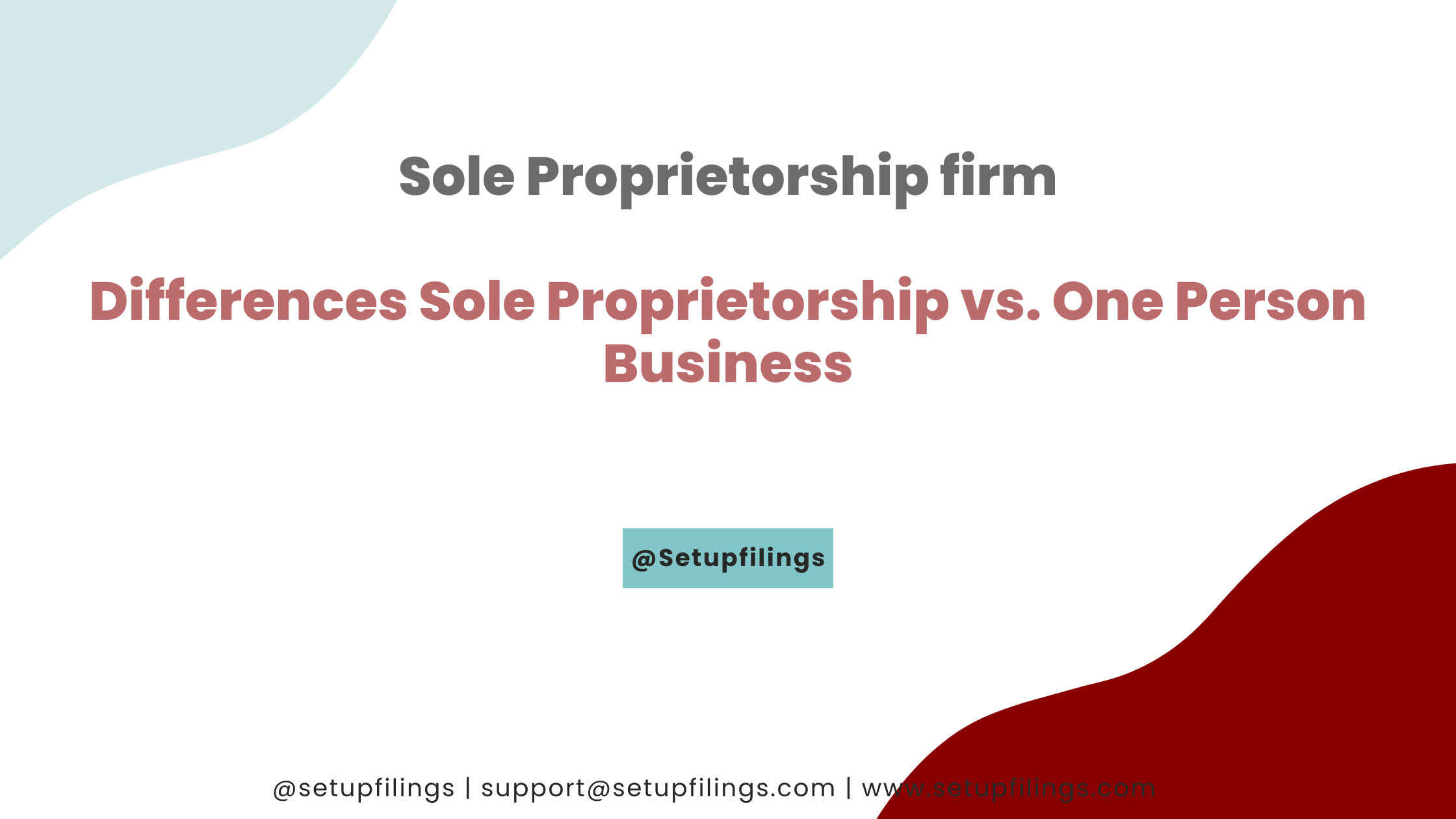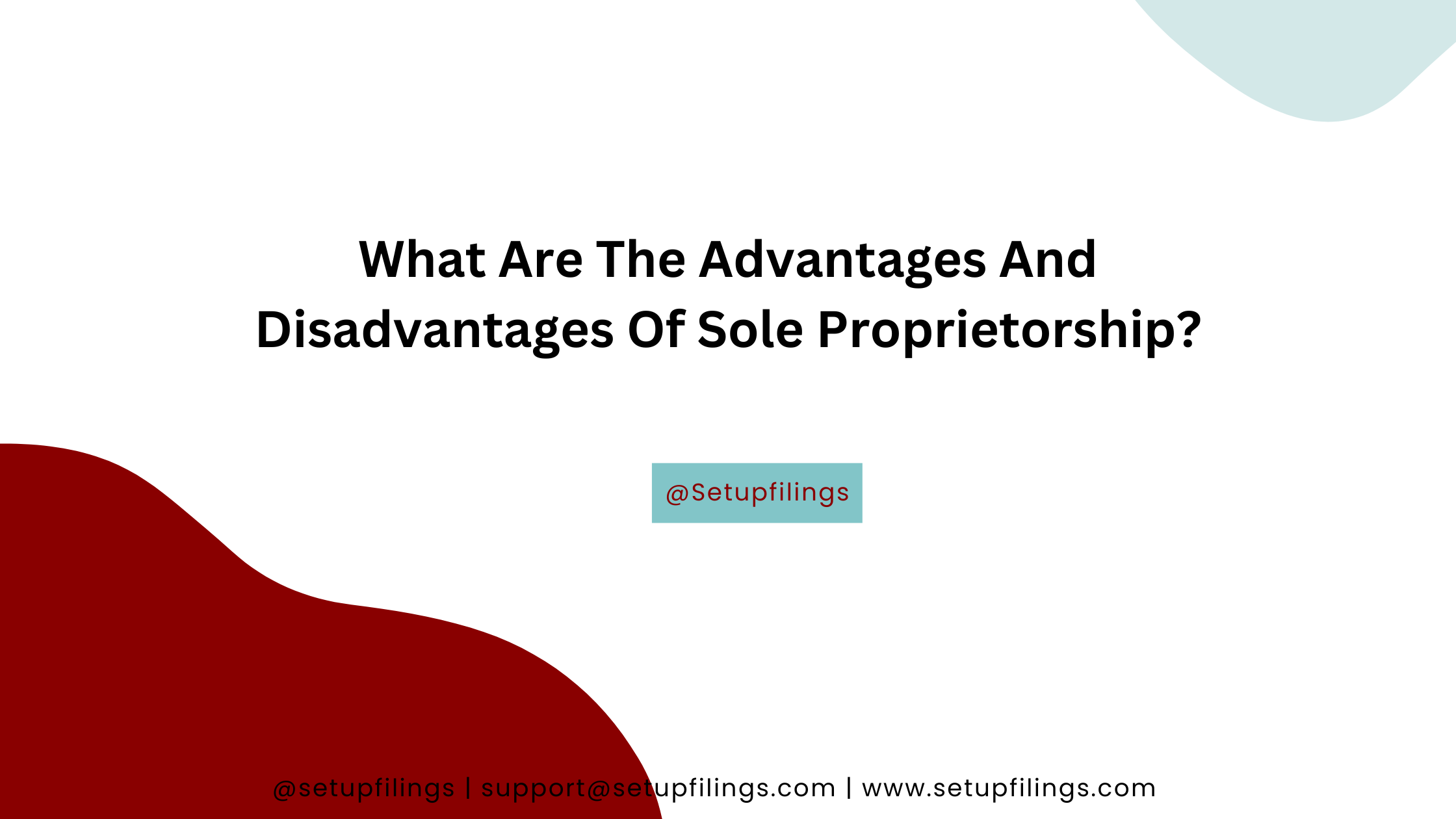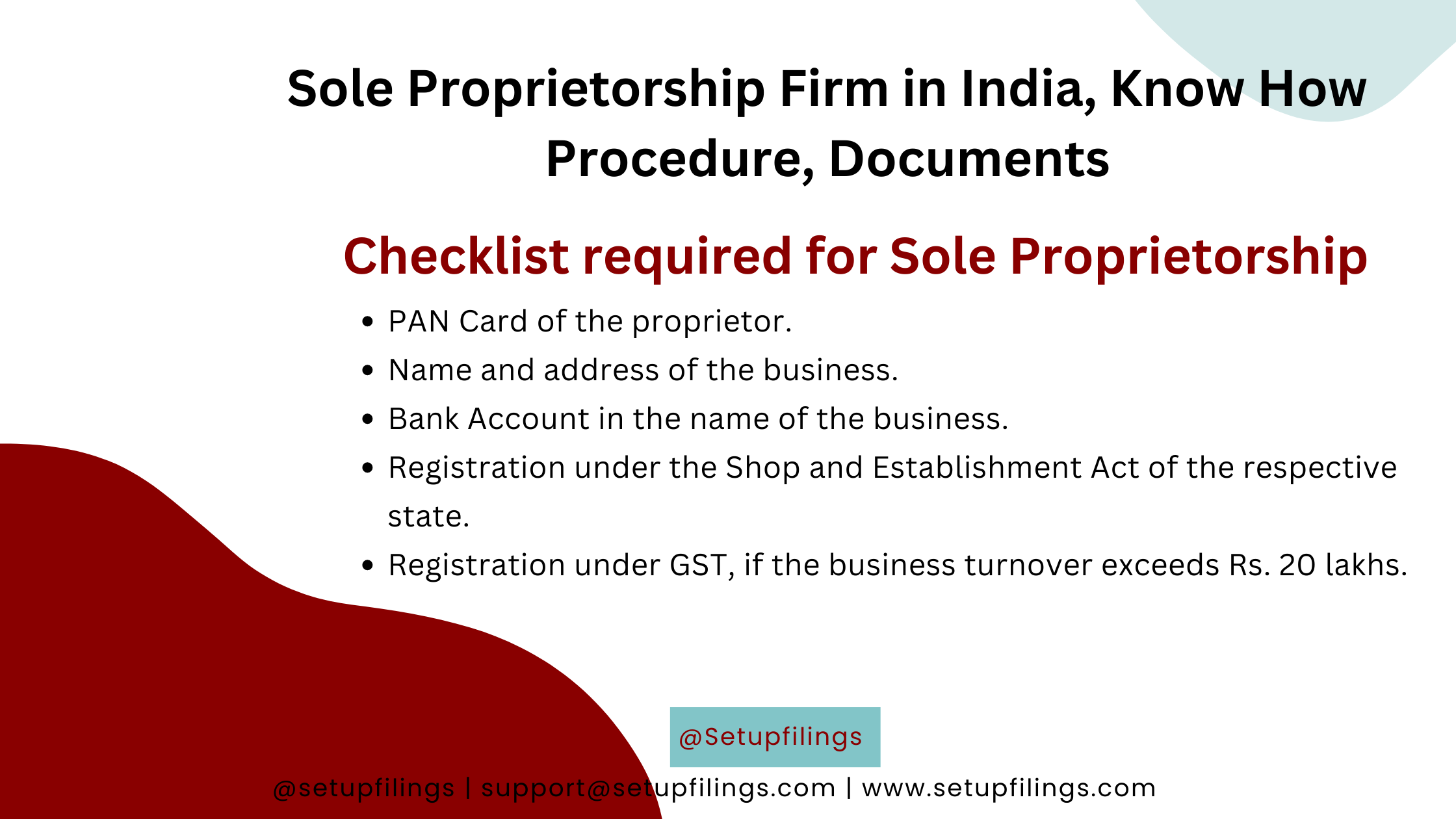
Differences Sole Proprietorship vs. One Person Business
What exactly is a sole proprietorship?
The term’ sole proprietorship’ refers to ownership and represents a single person. One of the most popular, simplest, and oldest types of business formation is the sole proprietorship. It is owned and operated by one person exclusively, and the individual in charge is referred to as a’sole proprietor’ or a’ sole trader’.
A sole proprietorship is an unregistered business with a single owner who pays personal income tax on the firm’s earnings. Forming sole proprietorships is popular among individuals, self-contractors, consultants, small company owners, and others because it is the simplest type of business with the least amount of government regulation.
A sole proprietorship has no difference between the business entity and its owner; hence, the company owner is also referred to as a single proprietor. As a result, it differs significantly from corporations and limited partnerships in that no distinct legal body is formed. As a consequence, the owner of a single proprietorship has limitless accountability for the entity’s debts. The creditors of a <a href="https://setupfilings.com/learn/advantages-and-disadvantages-of-sole-proprietorship/" title="What Are The Advantages And Disadvantages Of Sole Proprietorship?“>sole proprietorship, for example, are also the creditors of the owner.
Yet, a single proprietorship has an additional benefit in that all earnings pass directly to the owner.
What exactly is a one-person business?
A One Person Business is a hybrid between a sole proprietorship and a corporation. The Companies Act of 2013 introduced the new concept of One Person Corporation, allowing a person carrying on business as a sole proprietor to engage into a corporate framework with concessional/relaxed conditions under the Act.
A minimum of two directors and shareholders were needed to incorporate a private limited company under the previous Companies Act 1956. Nevertheless, according to Section 2(62) of the new Companies Act 2013, a company may be founded with only one Director and one member. OPC Company is a kind of business with less regulatory obligations than a private corporation.
The notion has created several opportunities for single owners and individual entrepreneurs who may benefit from limited liability and company registration.
What is the difference between a proprietorship and an OPC?
Sole Proprietorship Business
The first step in launching a company is deciding on an appropriate business structure. This selection is based on several characteristics such as business strategy, number of partners, investment needs, foreign investment, region of operation, risk tolerance, and so on.
The distinction between a proprietorship and an OPC may be examined using factors like as business formation and legal status, business risk on personal assets, acceptance and credibility, attracting investments, tax and legal compliances, startup benefits, business succession, and so on.
Various Business Buildings
A business in India may be structured in a variety of ways, including sole proprietorship, partnership, one-person company, limited liability partnership, private limited company, or public limited company. While choosing a company registration, one must understand the various forms of business structures, their benefits and drawbacks, public acceptability and image.
Visited 192 Times, 1 Visit today


